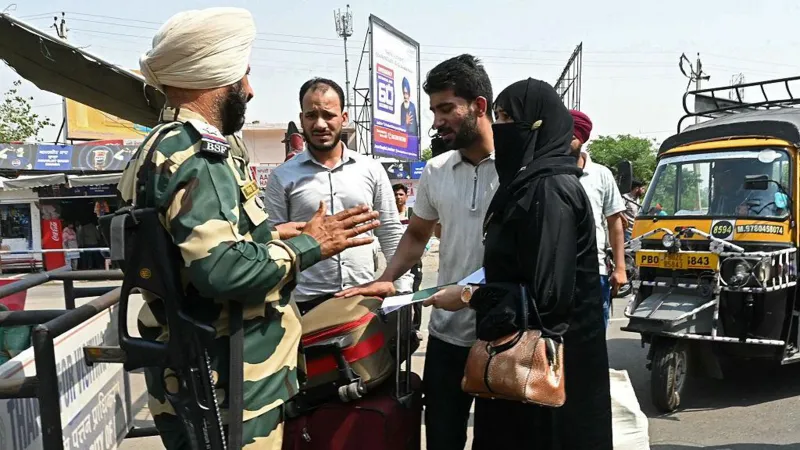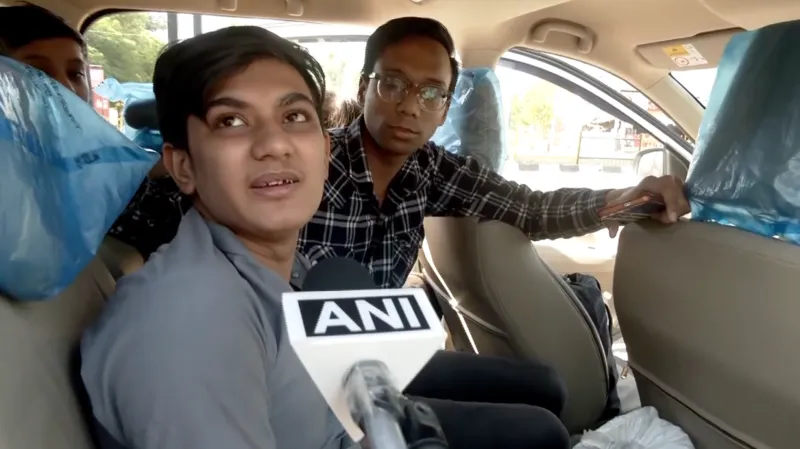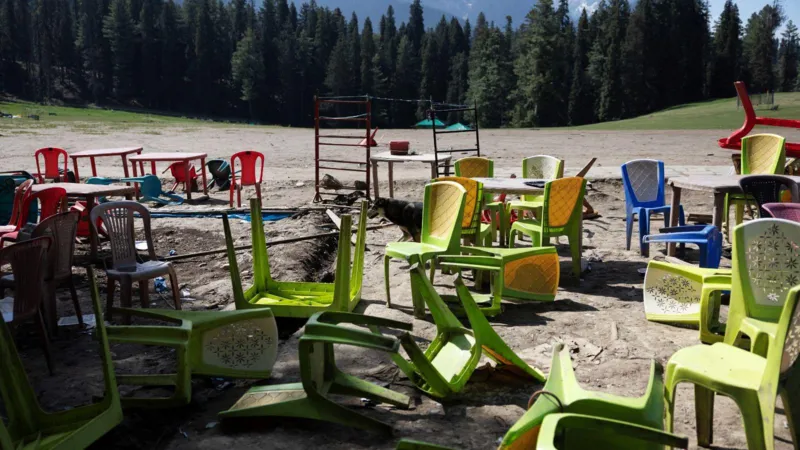Shahida’s heart ached with sorrow every time she thought about the decision before her: stay with her husband for love, or return to be with her siblings?
Now 61, Shahida Adrees moved to India from Pakistan in 2002 after marrying her maternal cousin, Adrees Khan, a resident of Punjab. In some South Asian communities, marriages between cousins are common.
Together, the couple led a simple, stable life—Khan worked as a driver, while Shahida cared for their home and child.
Every few years, Shahida, who had a long-term visa to stay in India, would receive a travel permit to visit her family in Pakistan.
But her routine life was upended last week when India suspended nearly all visas for Pakistani citizens following a deadly attack in Indian-administered Kashmir that left 26 people dead. Pakistan, which denies any involvement in the Pahalgam attack, retaliated with similar measures, canceling most visas for Indians.
When Shahida heard the news, the reality hit her: she could either return to Pakistan to be with her family now or stay in India and risk never seeing them again.
She decided to stay. Earlier this week, she canceled her planned trip to Pakistan to visit her ailing aunt. “If I had gone, I wouldn’t have been allowed back into India. Now that I’m here, I don’t know if I’ll ever see my siblings again,” she says, her voice heavy with uncertainty.

Shahida’s family is one of many in India and Pakistan facing the looming threat of separation, as relatives are divided by the border.
Although India and Pakistan have a history of tension, cross-border relationships and marriages are not unusual. This is largely due to their shared cultural heritage, a result of the partition in 1947 that divided the nations along religious lines, causing millions to migrate from their homes.
The boundary between the two countries not only divides land but also separates families—many Indians have relatives and ancestral ties in Pakistan, and vice versa.
In some cases, like Shahida’s, families have maintained these connections through marriages with relatives on the opposite side of the border. Recently, many couples have also found each other online, often overcoming significant barriers to be together.
Some of these couples apply for long-term visas, which require periodic renewals, while others seek citizenship in the neighboring country—a lengthy process that can take several years.
This week, as new visa restrictions took effect, heartbreaking scenes of families—young and old couples, children, and elderly parents—pleading for help were seen across television and social media platforms.
The BBC reached out to the Indian Ministry of Foreign Affairs for a statement.
“I came here with my mother, and now they want us to leave without her. How can I do that?” a tearful Mohammed Ayat, 17, shared.
Ayat, a Pakistani national, had traveled to India last month to visit his maternal relatives. His mother, an Indian citizen, had been living in Pakistan on a visa that was still awaiting renewal.
While Ayat returned to Pakistan, his mother remained in India, uncertain whether she would be allowed to enter again.
“They can punish the militants, but what have we done wrong?” Ayat said in an interview with ANI news agency.

The exact number of individuals leaving both India and Pakistan due to the recent tensions remains unclear, though it is estimated to be in the hundreds.
Parveen, who goes by a single name, was on a bus heading toward the Attari-Wagah border when she spoke to reporters. She shared that she had spent 41 years living in India. “I have no family—no mother, no brothers or sisters—in Pakistan. I have no place to go there. I’m utterly helpless,” she said.
Families affected by the visa suspensions have expressed confusion and anxiety, as the sudden nature of the restrictions has created chaos and uncertainty.
The visa restrictions imposed by the Indian government do not affect those like Shahida, who have long-term visas, which require renewal every few years. These visas, valid for up to five years, are issued to women from Pakistan and Bangladesh who are married to Indian citizens.
Under Indian law, long-term visa holders are allowed to visit their home countries, but they must first obtain a No Objection to Return to India (NORI) visa. However, in the aftermath of the recent attack, reports have surfaced that even NORI visa holders have been stopped at the border, as officials awaited further instructions.
Shahida has been assured by Indian authorities that NORI visa holders will be exempt from the new restrictions, but she remains hesitant about leaving India.
She reflected on whether things might have been easier if she had obtained Indian citizenship. “I applied for it back in 2009, but my application never moved forward. I never got any response,” she explained.
For Tahira Ahmed, even after obtaining Indian citizenship, the fear of being separated from her family and sent back to Pakistan still lingers. Originally from Pakistan, Tahira moved to Punjab in 2003 after marrying Maqbool Ahmed, an Indian citizen. She was granted Indian citizenship in 2016, 13 years after her marriage. Yet, the uncertainty about her status continues to trouble her.

“Whenever tensions rise between the two countries, our lives become collateral damage,” she explained. “In 2001, my wedding was delayed for two years when the border was closed after the Pahalgam attack on India’s parliament.”
While waiting for clarity, some couples are growing desperate.
Earlier this week, BBC Punjabi spoke with Maria Masih, a Pakistani citizen who relocated to India in 2024 to marry her partner, Sonu.
The couple met through social media and had known each other for several years before deciding to marry. Sonu mentioned that they immediately applied for a long-term visa for Maria following their wedding, but the application is still being processed. Maria is currently seven months pregnant.
“I want to stay here. I don’t want to go back. Please give me a visa and allow me to remain,” Maria pleaded with reporters earlier this week.
Since then, the couple has reportedly gone into hiding, and an investigation is underway.
Far from the couple’s situation, Ms. Ahmed reflects on the circumstances and wonders if anyone can truly blame them or anyone else for wanting to escape.
Follow share4all.cc for more updated news.


















